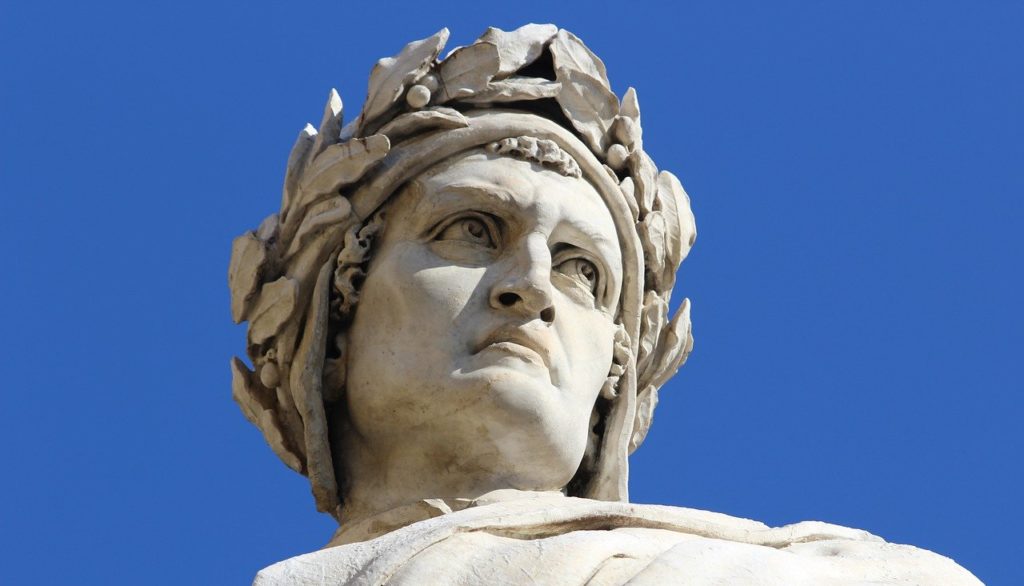On the 700th anniversary of the death of the great poet Dante Alighieri, author of the famous Divine Comedy, on the day on which the Church celebrates the Solemnity of the Annunciation of the Lord, Pope Francis has signed a new Apostolic Letter in which he reflects on the validity and relevance for humanity today of the cultural and spiritual legacy left by the Florentine writer.
It is entitled Candor Lucis aeternae (Radiance of the Eternal Light) precisely in reference to the incarnation of the eternal Word of God in the womb of the Virgin Mary and in homage to the Italian poet who with his work was able to express "better than so many others", "the depth of the mystery of God and of love".
In a dozen pages, Pope Francis reviews the message of hope, the role of mercy, the path of freedom, the mystery of the Trinity, the authority of woman and the uniqueness of every creature that emerge from the poet's work, as they have been handed down to our own day, including the need to be rediscovered and empowered.
It is well understood, going through the Apostolic Letter, that we are dealing with a highly appreciated author and it is not secondary that Pope Francis qualifies him from the very first words as a "prophet of hope", in fact, with all the more reason because of the dramatic events he had to live through and with respect to which he never resigned himself nor gave in to injustice, hypocrisy, arrogance or selfishness.
Cultural and moral treasure
However, beyond the biographical aspect, what is important for Pope Francis is that access to Dante's entire work serves as a stimulus for us, humanity today, to make the "journey of life and faith in a conscious way", welcoming all that cultural, religious and moral treasure that he transmitted.
A heritage that first of all - read, commented on, studied, analyzed - must be "listened to" and "imitated," writes Pope Francis, in order to fully satisfy "our humanity, leaving behind the dark forests where we lose orientation and dignity."
And what would be the legacy that the author of The Divine Comedy left to humanity, now seven centuries old?
At the roots of Europe
According to Pope Francis, Dante's work is above all "an integral part of our culture, it takes us back to the Christian roots of Europe and the West". It is, therefore, a wealth of ideals and values that even today the Church and civil societies "propose as the basis of human coexistence, in which we can and must all recognize ourselves as brothers and sisters".
Dante - writes the Holy Father - "knows how to read the human heart in depth and in everyone, even in the most abject and disturbing figures, he knows how to discover the desire to attain a certain happiness, a fullness of life". It is a process that arises first of all in an autobiographical form, which then extends to any other person who has the desire to find "the truth, the answer to the whys and wherefores of existence".
Freedom and mercy
Another aspect to highlight in the work of the Florentine poet is that of freedom, fundamentally linked also to divine mercy, as a condition "both of life choices and of faith itself". Man is in essence his freedom, and even those apparently insignificant gestures of everyday life "have a scope that goes beyond time," projected into the eternal dimension.
Pope Francis then highlights the content of "divinization" present in the Divine Comedy, the centrality of the mystery of the Incarnation, which happens to be at the center and essential core of the entire poem. In Dante's account, in short, "humanity, in its concrete reality, with its daily gestures and words, with its intelligence and affections, with its body and emotions, is elevated to God," where it finds its full and ultimate realization, "the goal of its entire journey."
Women as guides
In Candor Lucis Aeternae Pope Francis also highlights the central role of women in the Comedy: Mary, Beatrice and Lucy. A significant feminine presence, which performs a work of intercession and guidance: "Mary, the Mother of God, figure of charity; Beatrice, symbol of hope and St. Lucy, image of faith". Confirming that it is love that sustains on the path of life and leads to salvation, to the renewal of life and therefore to happiness.
Finally, there is a reference to the Saint of Assisi whose name the Pope bears, chosen as a figure among the many saints who in Dante's path reached the fullness of their life and vocation. With St. Francis - the Pontiff writes - Dante displays a "profound harmony", of leaving his own space and his own "customs" to reach out to the people, the former going among the people and preaching in the villages, the latter using the language of the people - the vulgar. Not to mention the "openness to the beauty and value of the world of creatures" that both have always favored.
Giving content to freedom messages
With regard to beauty, the Apostolic Letter concludes with an explicit invitation to artists "to give voice, face and heart, to give form, color and sound to Dante's poetry" so that they may succeed in communicating, as he did, the deepest truths of man, spreading "messages of peace, freedom and fraternity".
A call that becomes even more urgent in the particular historical moment that humanity is living, marked by many shadows and situations that degrade it, lacking confidence and prospects for the future. Through Dante, therefore, "prophet of hope and witness of the human desire for happiness," we can obtain real help to continue to move forward "with serenity and courage in the pilgrimage of life and faith," joyful and at peace.













